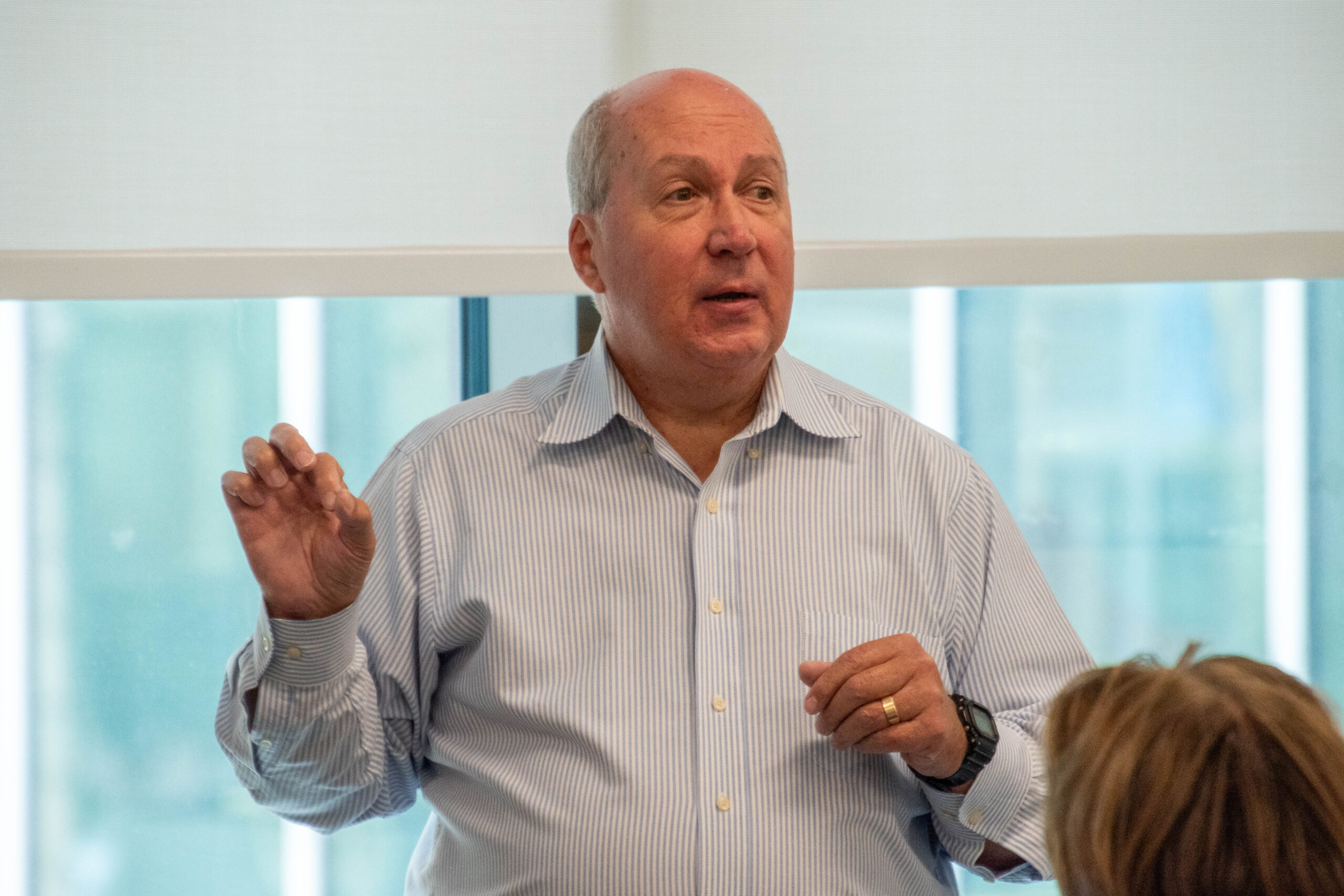World
Meet The World’s Best Employers 2024

Bacardi employees (aka primos) standing on Bacardi’s bat logo at the Casa Bacardi distillery and visitor center in Puerto Rico.
Bacardi Limited
The feeling of family at Bacardi Limited is palpable for employees—who, fittingly, are all called “primos” (which means cousins in Spanish), says Scott Northcutt, the company’s senior vice president of global human resources. “There is something so special about being part of a company that has been family-owned for seven generations,” Northcutt says. “The Bacardi name on each bottle isn’t just a brand name; it’s a family’s name and that makes it personal.”
That personal connection is evident not only in how Bacardi—founded in Cuba—preserves its family legacy, but also in how the spirits company takes care of its primos around the world, offering a slew of wellness and mental health benefits, including workout programs, mindfulness training and a service that provides confidential emotional support—available 24/7 to employees and immediate family.
Bacardi also invests in the career development of its staff. “We are committed to creating a robust pipeline of future leaders from within the company with custom programs at Harvard Business School, University of Miami, and other institutions across the globe,” says Northcutt. Primos can also take advantage of talent development opportunities right where they are with workshops that help define personal purpose and 10-year career plans. No doubt all of this—along with company mixology classes, of course—helped Bacardi land the No. 79 spot on our list of the World’s Best Employers 2024.
To determine this eighth annual ranking, Forbes partnered with market research firm Statista to survey more than 300,000 employees in over 50 countries who work for multinational corporations that employ more than 1,000 workers and operate in at least two of the six continental regions of the world (Africa, Asia, Europe, Latin America and the Caribbean, North America and Oceania). Respondents were asked whether they would recommend their company to family or friends, and to rate it on such criteria as salary, talent development and remote work options. Participants could also rate companies they knew through their own industry knowledge and through friends and family who worked there.
Survey responses were analyzed and tallied—along with data from the previous three years—with a heavier weight put on the more recent data and on the evaluations from current employees. While the number of honorees per country varied based on the population and qualifying companies in each area, 850 companies, spanning 48 countries, earned a spot on our list.
Microsoft
This year, the top 10 spots were populated by familiar contenders, but for the first time, Microsoft ranked at No. 1, after landing between No. 2 and No. 4 on every prior annual ranking. Coming in at No. 2 was Alphabet (aka Google), which has ranked within the top eight (often earning the No. 1 spot) in all prior seven years. The No. 3 spot went to Samsung Electronics, which has nabbed No. 1 for the past four years.
The industries that dominated this year’s list were similar to those from last year: banking and financial services (with companies such as Seoul-based KB Financial Group at No. 11); construction, chemicals, and raw materials (such as Japan-based Osaka Gas at No. 25); and engineering and manufacturing (including Munich-based Siemens and Volvo Group in Gothenburg, Sweden, at No. 32 and 33 respectively).
Regardless of the sectors they inhabit, however, many of the list’s high-ranking employers share one thing in common: providing employees with opportunities to upskill and advance in their careers, particularly in regard to the ever-accelerating pace of technological advancements. For example, Kathleen Hogan, Microsoft’s chief people officer, says that nurturing employee growth is central to keeping staffers “energized and empowered to do meaningful work.” This is why, she adds, “ten years ago we intentionally made a commitment to shift our culture from being ‘know-it-alls’ to ‘learn-it-all,’” which has fostered an environment where employees can take risks and learn from mistakes. Microsoft also offers hundreds of online and in-person technical, management and professional development classes that enable employees to expand their knowledge and skills as their career progresses.
Likewise, Samsung provides multiple avenues for employees to learn, including through professional development programs. The company’s own dynamic training platform, called the University of Samsung or the “UniverSE,” consists of 12 schools under three academies, and offers a variety of courses on topics ranging from functional skills to leadership. The training is available to employees around the world, including part-time and contract workers.
As KH Na, chief human resources officer at Samsung Electronics, notes, investing in employees is paramount. “As much as it is important to make technological innovations, it is equally crucial to build a better workplace, as these are mutually reinforcing objectives,” he says. “These efforts are based on one of Samsung’s core values, which states that “a company is its people.”
Click here to see the full list of the World’s Best Employers.
Methodology
To determine the World’s Best Employers 2024, Forbes—in partnership with market research firm Statista—surveyed more than 300,000 employees in over 50 countries who work for multinational corporate groups that employ more than 1,000 workers and operate in at least two of the six continental regions of the world (Africa, Asia, Europe, Latin America and the Caribbean, North America and Oceania). Respondents were asked whether they would recommend their company to family or friends, and to rate it based on such criteria as salary, talent development and remote work options. Participants could also rate companies they knew through their own industry knowledge and through friends and family who worked there.
Survey responses were analyzed and tallied—along with data from the previous three years—with a heavier weight put on the more recent data and on the evaluations from current employees. While the number of honorees per country varied based on the population and qualifying companies in each area, 850 companies, spanning 48 countries, earned a ranking on our list.
As with all Forbes lists, companies pay no fee to participate or be selected. To read more about how we make these lists, click here. For questions about this list, please email listdesk [at] forbes.com.
Forbes/Statista









